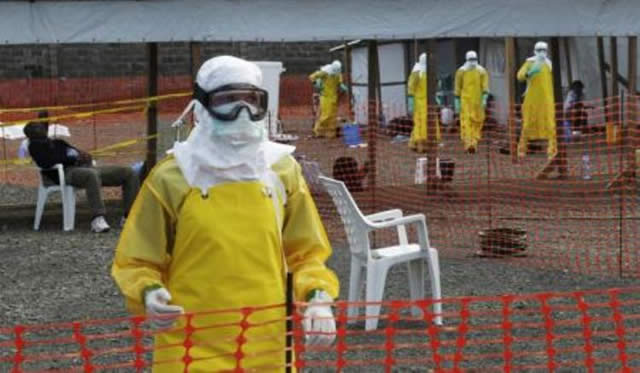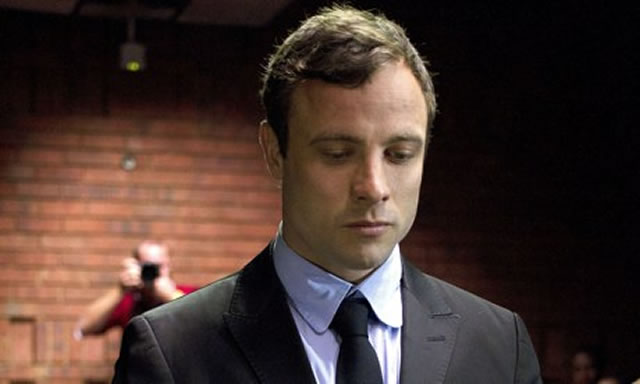Ebola to cost MSF $60m this year

 New York – Medecins Sans Frontieres (MSF) has warned that there are still “critical gaps” in the response to the Ebola outbreak, which it expects to cost the group $59 million this year.
New York – Medecins Sans Frontieres (MSF) has warned that there are still “critical gaps” in the response to the Ebola outbreak, which it expects to cost the group $59 million this year.
In an update on its response to the Ebola outbreak, the medical charity said it has treated almost a third of the 8,032 confirmed Ebola cases.
Of those it has treated, 917 have survived – a recovery rate of 37 percent.
The medical charity now has more than 3,000 staff working in six medical centres across Guinea, Liberia, Nigeria, Senegal and Sierra Leone.
Though repeated calls from MSF and others has prompted countries such as the US, UK, France, China and Cuba to commit assets and personnel to West Africa, the charity said that to date, “few pledges have transformed into concrete action on the ground”.
Plus, despite warnings from the UN Security Council that the outbreak is “a threat to international peace and security”, MSF said its teams “still see critical gaps in all aspects of the response”.
These gaps include medical care, training of health staff and infection control.
MSF has estimated that its activities until the end of 2014 in West Africa will cost $59m.
MSF reported a constant increase in confirmed cases across Guinea, with the outbreak situation “getting worse”. Both treatment centres are close to full capacity with 150 patients hospitalised in the last week alone.
MSF said it is in the process of building a new treatment centre in Macenta in collaboration with the Red Cross, which will take over in November.
Despite ramping up capacity in their treatment centres, MSF said the number of admissions in Monrovia has “remained stable” in recent weeks at around 120 patients admitted per week.
Though access to Ebola treatment centres is a problem in Monrovia, the MSF team had seen 1,101 patients by October 3 and the number of survivors is now 238 — a survival rate of more than 40 percent.
Meanwhile in Foya, the number of admissions has been “low” or even decreasing in the past few weeks. MSF said there is, however, “a concerning perception that Ebola may soon be over” and continues to push for awareness.
MSF said that every district in Sierra Leone is now affected by the epidemic, with new hotspots surfacing across the country including its capital, Freetown.
Though the international response is now underway, the charity said it is “slow and unco-ordinated”.
The government has put the five worst affected districts under quarantine, setting up roadblocks and affecting up to two million people. But the lack of resources is hampering the government’s response at every level, said MSF – with no strong surveillance system and 85 percent of helpline calls going unanswered.
Health workers’ efforts are further hampered by overcrowding, delayed lab tests, risk of cross-contamination and lack of ambulances.
With so many deaths, MSF said it is seeing a rising number of orphaned children amid a lack of caregivers.
MSF said its international teams left Nigeria almost 10 days ago.
A transition plan focusing on health education and training is ongoing, but MSF said that the outbreak can be declared officially over if there are no new cases by October 20.
Since intervening in early September, MSF has set up an isolation unit with a 13 bed capacity in Dakar. Despite expecting the country to be clear of contamination shortly, MSF continues to provide support and has set up an alert system to deal with any new cases should they emerge.
The DRC’s outbreak is “unrelated” to the one in West Africa, according to MSF, and has led to 11 deaths to date.
With 49 people admitted for treatment so far, MSF said the outbreak is “not controlled yet” with one new confirmed case on October 7.
There has been a confirmed case of Marburg fever (MVD) in Uganda – a severe and highly fatal disease caused by a virus from the same family as the one that causes Ebola.
MSF said it is currently mobilising its teams in preparation for a response.
According to the World Health Organisation, nine people died in the last outbreak of MVD in Uganda, which affected 20 people in 2012. – News24











Comments